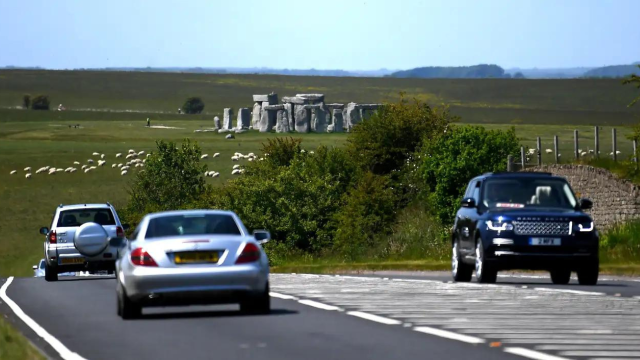Stonehenge, the iconic prehistoric monument in Britain, was first given legal protection by Parliament in 1882. The 19th-century law was the first time in the country that any structure was deemed historically significant enough to be protected. Now, the British government wants to construct a road tunnel near Stonehenge despite the harm that the government’s own experts believe the project will do to the UNESCO World Heritage Site.
The A303, the road which runs by Stonehenge, has long suffered traffic jams dozens of miles long during the summer holiday season. The proximity to the monument partly causes the congestion, but more significantly, the A303 is a key route between London and the South West of England. The BBC reports that the United Kingdom’s Department for Transport has approved a two-mile tunnel to keep traffic out of sight of Stonehenge, reduce congestion and shorten travel times.
The plan might sound straightforward, but building anything around a 5000-year-old archaeological site is incredibly destructive. Transport Secretary Grant Shapps initially approved the plan in 2020 without the recommendation of the government’s Planning Inspectorate. According to the BBC, the agency stated the tunnel would cause “permanent, irreversible harm” to the UNESCO World Heritage site. Thanks to a crowd-funded local campaign, a 2021 court ruling deemed Shappe’s decision unlawful and was able to freeze the project’s progress.
In this new approval, current Transport Secretary Mark Harper admitted, “There will be harm as a result of the development to cultural heritage and the historic environment.” The project seems absurd. Is adding two more lanes going to fix traffic? Probably not. Is it worth damaging one of the most historically significant sites on the planet? Definitely not.
